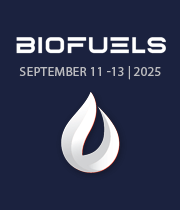Title : Biodiesel production: Enhanced lipid productivity and biosynthesis gene response of indigenous microalgae under different nutrient conditions
Abstract:
Microalgae have great potential as biodiesel feedstock, primarily due to their rapid growth rates and higher lipid yield. To enhance the total production of neutral lipids, it is crucial to optimize the microalgae growth parameters by inducing abiotic such as nutrient starvation or limitation. The present study focuses on the optimization of Chlorella sp. T4 under nutrients limiting and replete conditions and monitor lipid accumulation and biosynthetic gene expression levels. Microalgae growth, lipid yield, fatty acid profiles, and biosynthetic gene expression levels were determined to ascertain cell’s response under varying nutrient conditions. Under nitrogen-limiting conditions, there was a reduced biomass yield (0.58 ± 0.03 g L1 ) as shown by the low quantum efficiency of photosystem II (Fv/Fm) value and the amount of chlorophyll a. An increase in lipid content yield was observed under nitrogen and phosphorus limiting conditions as compared to the control.
Nutrient-limiting conditions produced fatty acid methyl ester that is suitable for biodiesel production compared to the control (BG-11). Gene expression analysis using real-time q-PCR for photosynthesis (rbcL) and lipid biosynthesis (accD, KAS-1, ω-6 FAD, ω-3 FAD) genes revealed different expression levels under both limiting and replete conditions. A significant correlation could be drawn between the expression levels of the biosynthetic genes and growth rate, biomass yield, physiological response, lipid yield and fatty acid composition. These results provide an insight into the physiological response and gene expression level under different nutrient levels, which could be harnessed for future genetic engineering of Chlorella sp. T4 for improved lipid production.



